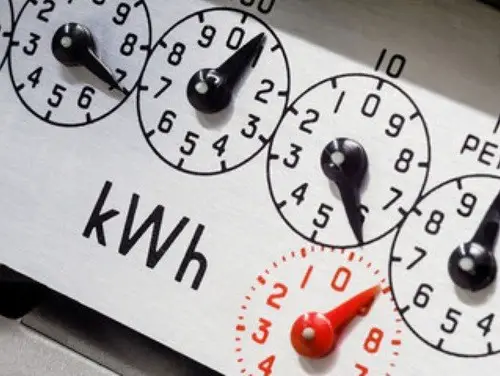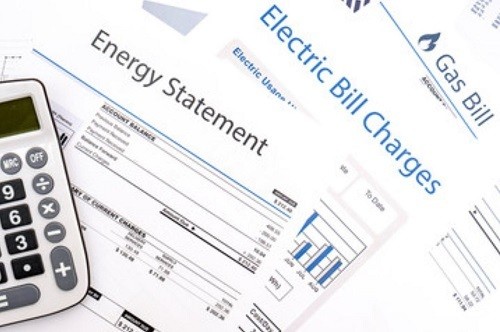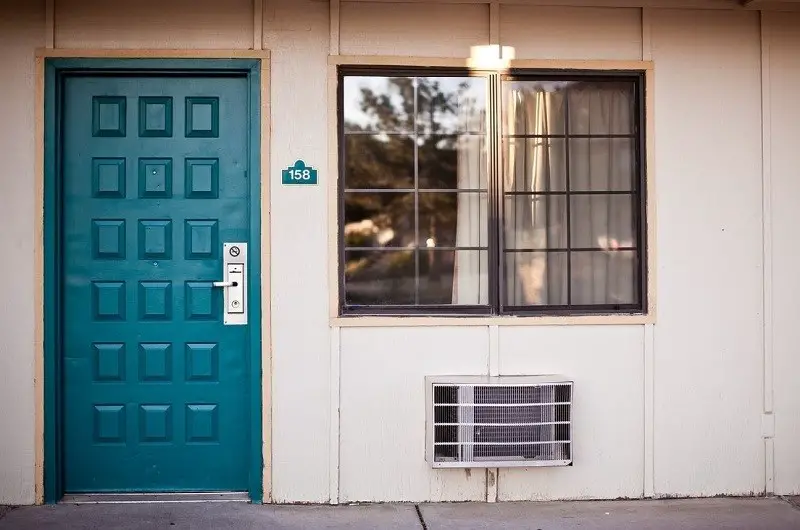Are you considering buying a new window air conditioner but are unsure if it’s worth the cost?
Do you want to know how much a window AC system will cost you every month?
This guide will help in that case.
Not only will we will let you know how much power a window air conditioner system consumes, but we also share ways to determine the cost of using a window AC per hour.
By the end of the article, you’ll be able to make a well-informed buying decision on a new window air conditioning unit.How Much Electricity Does a Window AC Consume?

The answer to this question varies.
That is because each window AC needs a different amount of electricity.
However, when most people ask this question, “How much does it cost to run window AC?” what they really want to know is how much it will impact their utility bill.
To answer that question, we have to understand two things:
Every county, state, and town charge a different rate for the use of electricity.
Take these for example:To know what you pay per kWh, look at your last electricity bill or go to your electric company’s website to check the posted rate.
2. Determine Your Window AC Electricity Consumption (Watts)
When shopping for a window air conditioner, you will find the appliance specified in British Thermal Units (BTU) rather than amperage (or watts).
BTU is a global standard for measuring the cooling capacity of an air conditioner and provides you a sense of how big a space the unit can manage.
For instance, a 10,000 BTU window AC system can cool a room of 450 Square feet (i.e., 20′ x 22′ area).
However, the problem is that not all air conditioners with the same BTU rating use the same amount of electricity to power the unit.
One 10,000 BTU air conditioner can use 900 watts of power, while another uses 1,000 watts.
The total watts depend on how energy efficient the manufacturer made the appliance.
So, how can you figure out how many watts does a window AC usage?
When you know the wattage used for a window air conditioner, you can combine this amount with the cost per kWh you pay for electricity at home.
That calculation will help you know how much it will cost you to operate the window air conditioner each hour, day, month, and during the year.
3. Calculate the Monthly Cost of Electricity

Finding out how many watts does a window AC use and the monthly cost for operating the appliance is, in fact, quite simple.
The formula for calculating the cost of operation comprises:
Here’s an example of a window AC unit that uses 650 watts:
When you understand the hourly cost to operate your window AC unit, you can learn the total daily, month, and year.
If we assume that you run the air conditioner for eight hours in a day, here’s the calculation of the amount of electricity it costs to operate a 550-watt window AC device:
Average Monthly Window AC Costs
How much does it cost to use a window AC for the average person?
If we take the average of running the device for eight hours per day and also consider the national kWh rate of $0.13, you can estimate spending the following amount per month on electricity for these different-sized window air conditioners.
Factors That Impact Your Monthly Cost to Run a Window AC Unit
The Traditional Energy Efficiency Ratio (EER) and the upgraded Seasonal Energy Efficiency Ratio (SEER) are both ratios that indicate the efficacy of a window air conditioner system.
Every window AC unit will have a large yellow sticker on it called the “Energy Guide.”
Furthermore, on that sticker, you’ll see an EER or SEER number and the expected annual energy cost to operate the devices.
Examples involve:The rule here is that the lower the SEER or EER number, the more efficient the window AC. That equates to less cost and electricity to operate each month.
If the window AC you have uses more watts than a similar product, it will have a greater EER or SEER number, and hence cost more.
Indoor Temperature
The temperature you set the window AC at can also impact the amount of electricity the unit uses.
When the cooling cycle starts, the appliance uses more energy to chill the room.
When the set temperature is reached, the cycle turns off, And just the fan blows--which uses less electricity.
If you’re setting the temperature really low, such as 62-degrees Fahrenheit, then the device will take much longer to attain that desired temperature, which raises your electricity bill.
Outdoor Climate
When it’s really hot outside, the temperature may not be able to reach the setting on the window air conditioner. That is because the unit must compete too hard against the ambient hot air.
If that happens, then the window air conditioner unit will continue to run at full burst without turning off the chill cycle, and that will boost your cost to operate the unit.
If you reside live in a very hot climate, you can probably expect to pay more per day to operate a window air conditioner.
Open Windows and Doors
If you have a window AC running in a room having an open window or door leading out to the other sections of the home, the device must work harder to cool the room.
If you have an enclosed area, your AC will have to work less as the air-conditioned air is contained.
Window Air Conditioner Filter
Did you realize that your window air conditioner has an air filter?
It sure does, and the air filter’s purpose is to keep dirt, dust, and debris from damaging the inner system.
Unluckily, the air filter gets clogged quickly, and if you don’t clean it, the efficiency of your window AC system can go down.
See and clean the air filter weekly to improve the cooling efficiency of your air conditioner and help reduce the operating cost.Maximizing Your Use of a Window AC System

In this informative article, you learned how much power does a window AC Use and how much does it cost to operate a window AC unit.
And, as you found, the answers depend on the efficacy of the appliance and factors which might be out of your control.
Although, one thing you can do to always keep your costs low only uses the air conditioner when it’s really required.
Many people often leave a window AC running all day long because they are likely to forget about it.
However, taking the easy step of turning it off when you go out or only running it in one-hour intervals can help you decrease your monthly electricity bill.
Something else you can do is make sure that the window AC is appropriately sized for the room that you are using it in.
If the window AC system is too strong, it will turn on and off too much (increasing electricity use). If it’s too small, the system will run continuously at full speed (also raising your monthly electricity bill).

